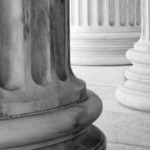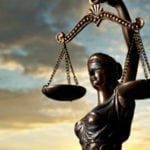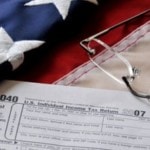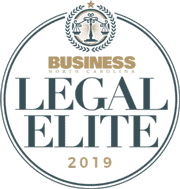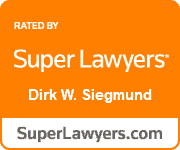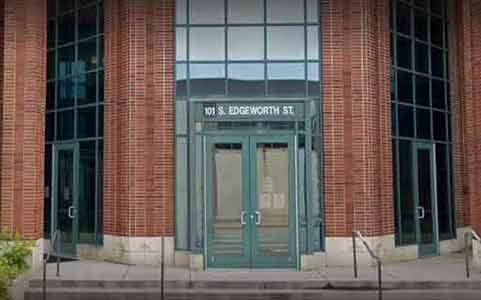Consumer Bankruptcy Guilford County
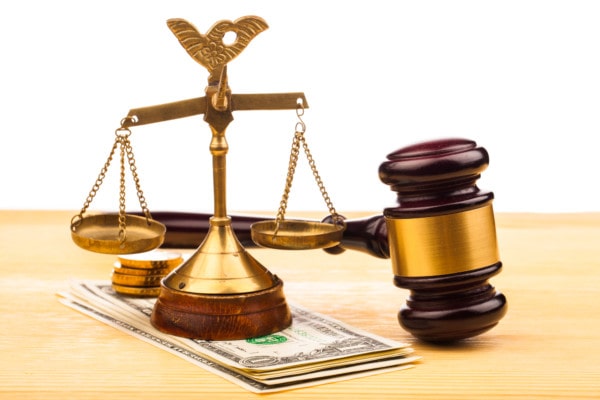
If you're considering bankruptcy, you likely already understand it's a form of debt relief. You might be aware that it can eliminate some or all of your unsecured debts and potentially stop the repossession of your vehicle and foreclosure on your Guilford County home.
Each year, hundreds of thousands of Americans decide that filing for consumer bankruptcy is the right option to alleviate themselves of the burden of debt and fears of losing their most valuable assets because of payment arrearages.
Many individuals who do so are right here in High Point and other parts of Guilford County. We know this because many seek assistance from a bankruptcy attorney in our Greensboro law office, Ivey McClellan, before filing in the United States Bankruptcy Court in the Middle District of North Carolina.
As a consumer bankruptcy law firm, we understand that making a decision to pursue this form of debt relief took a lot of thought and consideration to ultimately opt for it. This is why each Guilford County bankruptcy lawyer on our team wants to make sure you have a clear understanding of your options and how you can expect the legal process to unfold.
Looking for North Carolina Legal Representation?
Contact the Experts at Ivey McClellan Today!
Understanding Bankruptcy-Related Terminology
If you've already taken the time to read information about consumer bankruptcy, you may have already seen different terminology utilized and be unclear of its meaning. So, let's clarify what they refer to so it will make anything further that you review on our website or the United States Bankruptcy Court more easily understandable.
A Bankruptcy Attorney Explains the Difference Between Creditor and Debtor
First, a bankruptcy lawyer at Ivey McClellan and the court will often use the words "debtor" and "creditor." You're probably quite familiar with what creditors are.
Creditors are the individuals who have been sending calling and emailing you and sending you letters telling you that you owe them money and threatening to take legal action if you don't pay up. They may be your original creditor (the person you initially received a product or service from) or collection agents who purchased the debt from the original creditor.
Debtors are individuals who have debts -- owe someone else money -- and may have potentially fallen behind in making timely payments. A debtor is an individual who debt collectors pursue with their collection efforts.
What a Trustee Is in a Bankruptcy Case
Another term you may commonly see on the website for a bankruptcy attorney in Guilford County or the U.S. Bankruptcy Court for the Middle District of North Carolina, the one that serves Greensboro, High Point, Winston-Salem, or other cities throughout the Greater Piedmont Triad, is "trustee."
In most courthouses throughout our state and many others, the person presiding over legal proceedings that occur in a courthouse would typically be known as a "judge," no matter if it's a criminal or civil legal matter. However, the bankruptcy court system operates a bit differently. At bankruptcy hearings, the authority figure or decision maker is called a "trustee."
That trustee oversees all bankruptcy hearings, including the meeting of creditors. They also have the ultimate decision-making authority to decide whether your debts get discharged or if a bankruptcy case gets dismissed without any discharge of debts. The trustee also has the final say as to whether a proposed repayment plan (if applicable) is approved.

Consumer Bankruptcy Filing Options You Have
Now that we've clarified some of the terminology associated with the bankruptcy process let's deep-dive into the most popular options consumers have to choose from for debt relief.
Chapter 7 Bankruptcy
Consumers who file for Chapter 7 bankruptcy do so because they can no longer service their existing debt while continuing to pay for their everyday, basic living expenses. A bankruptcy attorney at Ivey McClellan will often recommend Chapter 7 to clients who want to:
- Eliminate their unsecured debts like medical bills and credit cards forever
- Either continue paying on secured debts (like their car note or mortgage) or have them returned to their lender to eliminate their debt obligation to them
High Point and other Guilford County residents who wish to file Chapter 7 bankruptcy with the court in the Middle District of North Carolina must first qualify to do so by passing the means test. It involves a debtor writing down their debts and basic monthly obligations along with their income and assets so that it can be determined if they have the means to repay their debts or if doing so would unnecessarily burden them financially. If it does the latter, debtors generally qualify to file for Chapter 7 bankruptcy.
Chapter 13 Bankruptcy
A bankruptcy attorney from our Greensboro law office, Ivey McClellan, may recommend that a client pursues Chapter 13 bankruptcy when they have a stable income to repay most of their debts; however, they previously fell out of rhythm in doing so due to illness, loss of a job, or another setback, and need to just get back on track again.
Filing for Chapter 13 bankruptcy allows consumers:
- Stop foreclosure on their High Point or other Guilford County, NC home
- Stop repossession of their vehicle
Clients who pursue this form of debt relief generally have to pay a portion of the unsecured debt they owe before the remainder gets erased. Devising a Chapter 13 bankruptcy repayment plan that their creditors agree to allows all of the above-referenced debt relief to be set in motion.
How the Consumer Bankruptcy Process Unfolds in Guilford County, NC
A lot of groundwork must be done before you actually file your bankruptcy paperwork with the U.S. Bankruptcy Court in the Middle District of North Carolina. That namely has to do with compiling a comprehensive listing of your debts, monthly expenses, assets, and income.
Once you do that, you must pass the means test (if applicable) and complete the pre-bankruptcy credit counseling course. Soon thereafter, you'll need to attend a meeting of creditors.
If a repayment plan figures into the mix, you'll need to submit it to the court and await its approval before making payments per its terms. You'll need to continue making timely payments to remain eligible to retain property or discharge applicable debts in the Chapter 13 bankruptcy process.
Anyone pursuing any consumer bankruptcy option must also complete a pre-discharge debtor education course before their case is wrapped up.
How a Consumer Bankruptcy Lawyer From Ivey McClellan Can Help in Your Case
It's natural for you to have questions as you consider your debt relief options -- and we completely understand that they may go beyond the information on this page and other areas of our Guilford County bankruptcy law firm's website.
A bankruptcy attorney is here, eager to help answer any questions you may have to understand if this debt relief option is best for you. So, contact us by phone or email today to discuss your most pressing concerns regarding filing for bankruptcy in High Point and other parts of Guilford County. We're happy to help.
Office Locations
Greensboro
305 Blandwood Ave
Greensboro, NC 27401
Phone: (336) 274-4658
Fax: 336-274-4540
Eden
551 Monroe Street
Eden, NC 27288
Phone: (336) 623-4600


